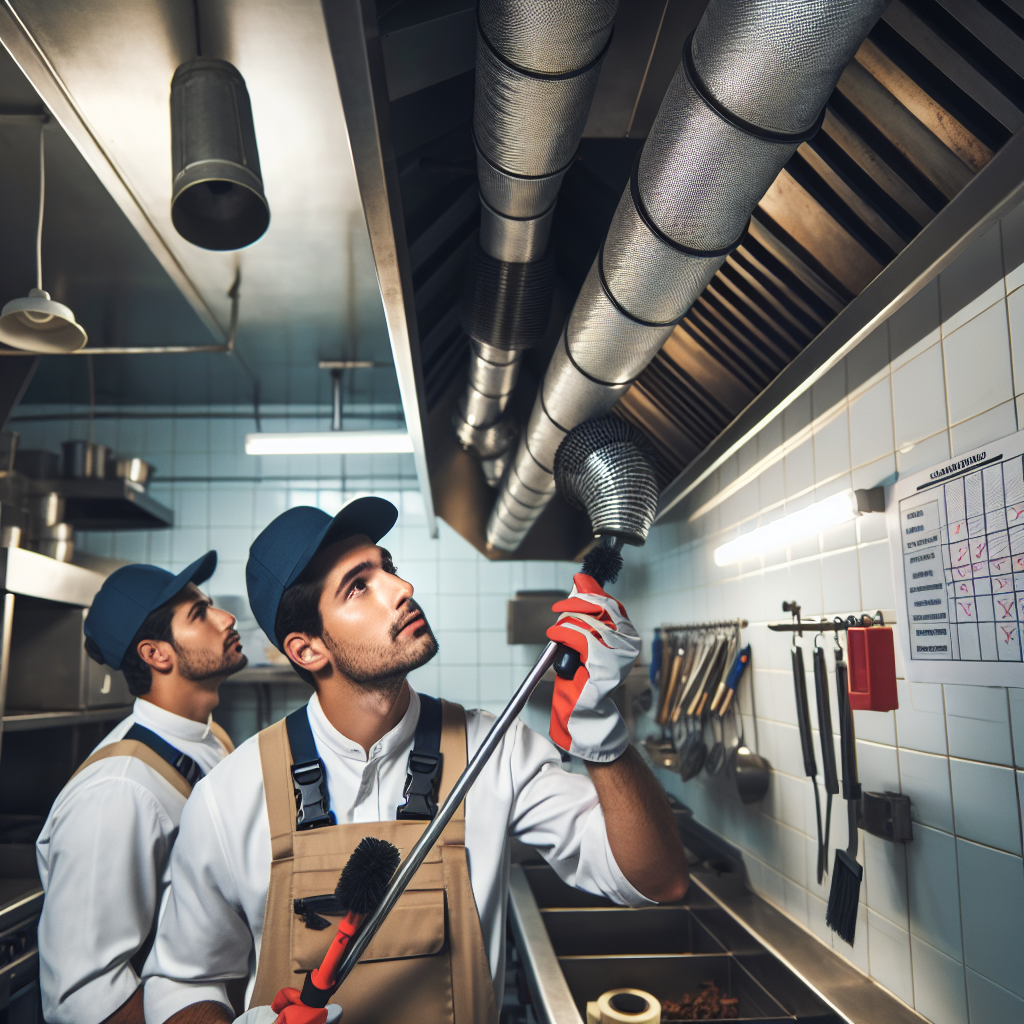Understanding Hood Cleaning Regulations
In the world of commercial kitchen hood cleaning, staying compliant with government regulations is crucial for safety, efficiency, and legality. Failing to adhere to the guidelines can lead to severe penalties, including fines and closures. Therefore, understanding the specific regulations related to hood cleaning is essential for any business operating a commercial kitchen. But what exactly are these regulations, and how can businesses ensure they stay compliant?
The Importance of Hood Cleaning Regulations
Commercial kitchens, whether in bustling restaurants or large-scale cafeterias, produce a significant amount of grease and smoke. These byproducts accumulate in the exhaust hoods and ductwork, creating a severe fire hazard if not routinely cleaned. Moreover, proper restaurant hood cleaning ensures a safer and healthier work environment by maintaining air quality. To mitigate these risks, jurisdictions worldwide have put in place specific regulations.
Key Regulations in Different Jurisdictions
The regulations surrounding exhaust hood cleaning can vary significantly depending on your location. Here are some of the most common guidelines:
- Frequency of Cleaning: Regulations often dictate how frequently hoods should be cleaned, which can range from monthly to annually depending on the volume and type of cooking performed.
- Certification Requirements: Many jurisdictions require that commercial kitchen hood cleaning be performed by certified professionals who understand the standards and procedures necessary to complete the job safely.
- Documentation: Keeping detailed records of cleaning schedules and results is often required to prove compliance with local laws.
- Equipment Standards: Specific standards for exhaust systems and hoods, including design and installation, must be followed to ensure they work effectively.
- Sustainability Practices: Some regions have introduced regulations to minimize the environmental impact of hood cleaning processes, requiring the use of eco-friendly products.
Ensuring Compliance
For businesses, ensuring compliance with hood cleaning regulations involves several steps:
- Stay Informed: Regularly check local and national regulations as they can change. Subscribing to industry bulletins or working with a knowledgeable hood cleaning service provider can help keep you updated.
- Hire Certified Professionals: Always ensure that any restaurant hood cleaning service you hire is certified and well-versed in local regulatory requirements.
- Maintain Records: Proper documentation of cleaning services and schedules should be meticulously maintained and easily accessible during inspections.
- Internal Training: Educate staff on the importance of clean hood systems and the associated fire and health risks. Training can also help employees recognize when a system requires cleaning.
- Conduct Regular Inspections: Regular internal inspections can help you identify potential compliance issues before they become problems during official evaluations.
The Role of Professionals in Compliance
Partnering with experienced professionals like Nashville Hood Cleaning Pros ensures that your business not only meets current regulations but does so with expert efficiency. Professionals are skilled in identifying issues that might not be evident to the untrained eye. They can also offer customized maintenance schedules to keep your operation in line with all necessary commercial kitchen hood cleaning standards.
Common Challenges in Hood Cleaning Regulation Compliance
Despite best efforts, businesses often encounter challenges related to exhaust hood cleaning compliance. One major challenge is the ever-changing landscape of regulations that can catch businesses unaware if they aren’t proactive. Another issue is the misconception that periodic cleaning is sufficient without considering factors such as cooking volume and type.
Furthermore, limited awareness and training among staff can lead to overlooking signs that indicate when hood cleaning is necessary. This underlines the importance of professional guidance and regular training updates.
Creating a Compliance-First Culture
Compliance should be ingrained in your business culture—it’s not just about avoiding fines, but about creating a safe kitchen environment. Here’s how you can promote a compliance-first culture:
- Leadership Involvement: Business leaders should be visibly committed to safety and compliance, setting the tone for the entire organization.
- Regular Updates and Training: Ensure continuous education and updates about the latest in hood cleaning technologies and regulations.
- Open Communication: Create channels for staff to communicate concerns and suggestions about compliance easily.
Conclusion
Navigating the world of hood cleaning compliance doesn’t have to be daunting. By understanding the specific regulations and partnering with a reliable service like Nashville Hood Cleaning Pros, businesses can maintain safe, efficient operations while avoiding costly fines. Remember, staying informed, hiring certified professionals, and fostering a culture of compliance are key to meeting and exceeding regulatory standards. This not only protects your business but ensures the safety and well-being of both staff and patrons.


